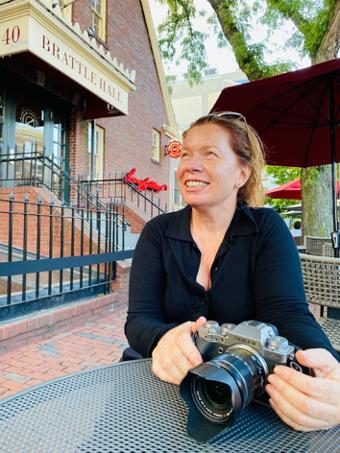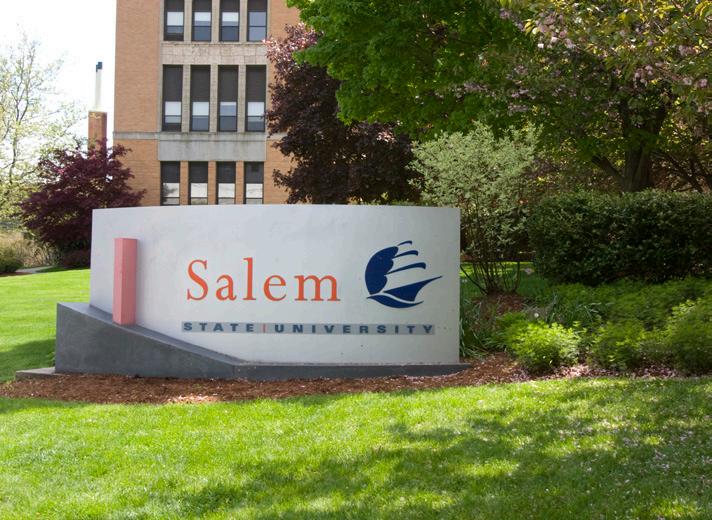
The English graduate student newsletter offers faculty descriptions of the courses, as well as upcoming events and important dates. If you have questions about registration, or need help deciding what to take, your graduate coordinator will be delighted to assist you. Feel free to contact the instructors of any courses you are interested in if you would like more detailed information. IMPORTANT PROGRAM DATES SALEM STATE UNIVERSITY ENGLISH GRADUATE PROGRAM CONTACT INFORMATION THERESA DEFRANCIS Coordinator, English MA, MAT, and MA/MAT Graduate Programs tdefrancis@salemstate.edu 978.542.7422 J.D. SCRIMGEOUR Chair, English jscrimgeour@salemstate.edu 978.542.7422 MELANIE GONZALEZ Coordinator, Master of Arts in Teaching/ESOL mgonzalez@salemstate.edu 978.542.2659 SCHOOL OF GRADUATE STUDIES 978.542.6323 Spring, Summer, and Fall 2020 THE MASTHEAD SALEM STATE UNIVERSITY ENGLISH GRADUATE STUDENT NEWSLETTER SEPTEMBER • Fall semester classes start the Wednesday after Labor Day • Deadline to submit fall semester graduation application • Application for November Language Exam due. NOVEMBER • Language Exam DECEMBER • Final theses and manuscripts, with all forms and signatures, due to graduate coordinator for fall graduation • Fall semester classes end the third week of December. JANUARY • Spring semester classes start after MLK holiday. FEBRUARY • Application for March Language Exam due. MARCH • Deadline to submit spring semester graduation application. • Language Exam. APRIL • Registration for fall and summer classes. • Final theses and manuscripts, with all forms and signatures, due to graduate coordinator for fall graduation. MAY • End of spring semester classes. • Graduate and Faculty Research Day. JUNE • Application for July Language Exam due. JULY • Summer II classes start. • Language Exam JULY-AUGUST • Summer Institutes.
WRITERS SERIES: POET’S PANEL WITH JOSEPH LEGASPI AND SUSAN RICH:
Tuesday October 6
7:30
Zoom (Registration Required)
Registration information found at:
SALEMSTATE.EDU/ARTS
Joseph O. Legaspi is the author of the poetry collections Threshold and Imago, both from CavanKerry Press; and three chapbooks: Postcards (Ghost Bird Press), Aviary, Bestiary (Organic Weapon Arts), and Subways (Thrush Press). Recent works have appeared in POETRY, New England Review, World Literature Today, Best of the Net and the anthology Reel Verse (Everyman’s Library). He cofounded Kundiman (www.kundiman.org), a national nonprofit organization dedicated to nurturing generations of writers and readers of Asian American literature.
Susan Rich is the author of four books of poetry; Cloud Pharmacy, The Alchemist’s Kitchen, Cures Include Travel and The Cartographer’s Tongue: Poems of the World (White Pine Press). Her awards include an Artists Trust Fellowship, PEN USA Award, a Fulbright Fellowship, and a Times of London Literary Supplement Award. Rich’s poems have appeared in the Antioch Review, Harvard Review, New England Review, O Magazine, World Literature Today and elsewhere. She has two books forthcoming: Gallery of Postcards and Maps: New and Selected (Salmon Press) and Blue Atlas (Red Hen Press). Although born and educated in Massachusetts, Rich teaches at Highline College in Seattle, Washington and is the cofounder of Poets on the Coast: A Writing Retreat for Women.
SCHOOL OF GRADUATE STUDIES
WRITERS SERIES: YOUNG ADULT/MIDDLE-GRADE WRITERS PANEL WITH COE BOOTH AND ERIN DIONNE :
Thursday Nov
found at: SALEMSTATE.EDU/ARTS
Registration
Coe Booth was born and raised in the Bronx, NY. She is the author of four novels for children and young adults: Tyrell, Kendra, Bronxwood, and Kinda Like Brothers. She is the winner of the Los Angeles Times Book Prize, and her books have been selected as ALA’s Best Books for Young Adults, The New York Times Editors’ Choice, and NPR’s Best Books. Coe’s short stories have appeared in several anthologies, including This Is Push: New Stories from the Edge and Black Enough: Stories of Being Young & Black in America. Coe received an MFA in creative writing from The New School.
Erin Dionne’s latest novel for tweens is Secrets of a Fangirl (Scholastic 2019). She’s written six other books for young readers. Her novel Moxie and the Art of Rule Breaking: A 14 Day Mystery, is based on the real-life Isabella Stewart Gardner Museum art heist and was a 2014 Edgar Award finalist. Her most recent picture book, Balletball (Charlesbridge), released in February 2020. She is an Associate Professor of Liberal Arts at Montserrat College of Art, in Beverly, MA, and lives outside of Boston with her husband, two children, and a very indignant dog. Find her online at erindionne.com.
MASTER’S IN ENGLISH
REGIONAL CONFERENCE:
ENGLAND (MERC)
Saturday, January 23,
Virtual
OPEN HOUSE FOR ENGLISH PROGRAMS (MA, MAT, TESOL, WRITING & RHETORIC) Thursday, October 8, 2020 5:30–6:30 pm Virtual Event Registration information found at: salemstate.edu/admissions-and-aid/graduateadmissions/graduate-admissions-events UPCOMING EVENTS
5 7:30 Zoom (Registration Required)
information
NEW
2021 10 am–5 pm
Event For more information: MERCNEWENGLAND.WORDPRESS.COM
COURSE DESCRIPTIONS
SPRING 2021, JANUARY-MAY
ENG 707: NINETEENTH CENTURY AMERICAN NOVEL
Professor Arthur Riss, PhD
Time: Wednesdays, 4:30-6:50 pm, HYBRID
A study of the development of the early American novel. Some of the writers to be considered are Brown, Cooper, Hawthorne, Stowe, Alcott, Jewett, and Melville. This is a literature course.
ENG 794: STUDIES IN LITERATURE OF THE WORLD
Professor Stephenie Young, PhD
Time: Tuesdays, 4:30-6:50 pm, HYBRID
This course offers an opportunity for students to study texts drawn from World literatures. Possibilities might include study of a significant author or work in a global context, or examination of various genres or traditions in World Literature. This literature course may be repeated up to nine credits. Multiple enrollments in a term are allowed.
ENG 817: APPROACHES TO TEACHING COMPOSITION
Professor Tanya Rodrigue, PhD
Time: Thursdays, 7:00-9:20 pm, ONLINE
SYCHRONOUS
This course investigates research and theories that inform current composition pedagogy and adapt these perspectives to actual classroom situations. Students will study theories of writing pedagogies and reflect on their own assumptions and practices about writing and the teaching of writing. Students will develop methods for teaching analysis, invention, drafting, revision, assignment design, and assessment, with special attention to the teaching of 21st century literacies, teaching with technologies, and teaching writing online. This is a writing course that is also part of our new Certificate in Writing and Rhetoric. This course is also required in the MA/MAT and MAT English programs.
ENG 818: POETRY WORKSHOP
Professor January O’Neil. PhD
Time: Mondays, 4:30-6:50 pm, cross-listed with ENL 423, ONLINE SYNCHRONOUS
In this workshop, we will take poems apart and put them back together. We will read and discuss the work of published poets while, at the same time, share our own writing in weekly workshops. In both instances we will focus on the poem’s construction: how the poems are made, and the result of each poets’ choices. This writing workshop may be repeated up to nine credits.
THE
ENG 820: FICTION AND NARRATIVE FORMS PROFESSOR ALEXANDRIA PEARY, PHD
Time: Thursdays, 4:30-6:50 pm, BLENDED WITH ONLINE MEETINGS THURS. 5:30-6:50.
This course gives students time to hone their narrative technique through workshop, feedback, and readings in both creative nonfiction and fiction. Students experiment with a range of narrative genres (moving between creative nonfiction and fiction) and narrative forms (including micro essays and flash fiction) to circle back to their primary writing projects, whether that project is a novel, memoir, collection of short stories or essays or work toward a thesis. Emphasis in this course is placed on best practices for sustaining writing, including mindful writing to find new material and reduce writing blocks. This course is useful for writers who want to give their narrative projects a creative reboot as well as writers wrestling with particular structural questions. This writing course may be repeated up to nine credits.
ENG 870: WRITING CENTER GRADUATE PRACTICUM
Professor Al DeCiccio, PhD
Time: Wednesdays, 1:40-3:30 pm, cross-listed, ONLINE SYNCHRONOUS
Welcome to ENG 870: Writing Center Practicum! In this course, we will examine the ways in which writing interventions can benefit writers by exploring together a range of strategies for such interventions. We’ll explore everything from what makes a successful writing center session to new media and online tutoring (especially important while experiencing COVID-19), working with writers in the disciplines, working with multilingual writers, working with graduate student-writers and faculty members, and investigating how different identities surface and play out in the Writing Center. This is a writing course.
SUMMER I, 2021, MAY 24- JULY 3
ENG 713: DIGITAL HUMANITIES
Professor Roopika Risam, PhD
Time: WWW
In this fully-online course, we will experiment with using digital humanities tools and methods of analysis to explore African Diaspora studies. This cutting-edge area of interdisciplinary scholarship uses computational and digital tools to analyze and interpret literature, culture, and history. The goal of our exploration is to consider the relationship between close reading, the bread and butter of literary analysis, and the discoveries that engaging with digital methods can inspire. For each of the first five weeks of class, you will read about digital humanities, play around with digital humanities tools, and reflect on and discuss your insights. We will experiment with
social media analysis, computational textual analysis, digital mapping, and algorithms. During the last week of the class, you will design and begin implementing a (very) small-scale digital humanities project using digital humanities methods based on your interests. Previous students have developed lesson plans for their teaching, used textual analysis to interpret their own creative writing, and used digital mapping for their MA capstone research. No prior experience with computational or digital tools is necessary. This course counts for the Certificate in Digital Studies.
ENG 745: INTRO TO WRITING AND RHETORIC
Professor Al DeCiccio, PhD
Time: Tuesday/Thursday 4:30-6:30, ONLINE SYNCHRONOUS
This course introduces students to the discipline of writing and rhetoric, its formation, histories, methods, and methodologies. Students will study key concepts, theories, and practices as well as trace and explore historical and ongoing conversations related to writing, writing processes, and writing practices. This is a writing course.
SUMMER II, 2021
JULY 12–AUGUST 21
ENG 709: LITERATURE OF THE AMERICAN DREAM
Professor Keja Valens, PhD
Time: WWW
“The American Dream” seems to have many, often contradictory meanings. “The American Dream” stands for a particular ideal of American opportunity and social mobility, often expressed as the idea that in America anyone can “pull themselves up by the bootstraps” and achieve a middle class success characterized by the image of a house with a white picket fence, 2.5 children, and a dog. ‘The American Dream’ stands for destructive mythology, an American notion of itself as hardworking, self-sufficient, and fair, which hides its systemic racism, its deeply entrenched class system, its environmental destruction, its growing income inequality, and its reliance on the subjugation of huge swaths of its own population and large parts of the population of the world. “The American Dream” stands for the hope of democratic society, equal rights, fair access to education, health care, and jobs, that the United States holds out to the rest of the world. The “American Dream” is the promise of civil rights that Lincoln made and Martin Luther King Jr. reminded, in his “I Have a Dream” speech, was yet to be delivered. As we examine the different literary constructions, meanings, and functions of these “American Dreams,” we will ask how works of literature shape and reshape the national imagination. This is a literature course.
ENG 830: DIGITAL WRITING
Professor Roopika Risam, PhD
Time: WWW
This course introduces students to an expanded definition of writing through the study and practice of digital writing. Students will engage with contemporary scholarship on digital rhetoric and critical making to understand theories and practices of digital writing. They also will consider how the digital world affords writers the genres, strategies, tools, and platforms for composing beyond text and print. Special emphasis will be placed on engaging with digital modes as a writer and bringing this exciting approach to composition into classrooms. For the hands-on experience needed to effectively create digital content, students will analyze and compose digital texts such as comics, videos, websites, podcasts, and blogs. This writing course counts for the MA, MAT, and Certificates in Digital Studies and Rhetoric and Writing.
SUMMER INSTITUTES, 2021, M-F, 8:30-4:30 ON THE WEEK INDICATED
ENG 761: SHAKESPEARE TEACHERS’ INSTITUTE
Professor Jeffrey Theis, PhD
Time: Second week in August
ENG 761, Shakespeare Teacher’s Institute is for teachers and teachers-in-training and brings Shakespeare’s plays to life through performance techniques and scholarly research. Each summer we focus on one specific play. In a low-stakes setting, students will do some acting, learn about curriculum development, and generate both teaching lesson plans/assessments and an annotated bibliography based upon scholarly research. Online discussions after the institute and a reconvene meeting are also required. May be repeated for credit or taken only for professional development points. Email Jeff Theis (jtheis@salemstate.edu) with any questions about this course or to indicate your contact information (mainly email address as well as mailing address).
FALL 2021
SEPTEMBER–DECEMBER
SCHEDULE)
ENG 715: TOPICS IN DIGITAL STUDIES: CRITICAL DIGITAL EDITIONS
Professor Keja Valens, PhD
Time: TBA
This course offers an intensive examination of highly specialized topical areas in digital studies. May be
repeated, with a different topic, for up to 6 credits with permission of the English MA graduate coordinator.
ENG 725: INTRO TO GRADUATE STUDIES IN LITERATURE
Professor Roopika Risam, PhD
Time: TBA
This course introduces students to thinking and writing about literature in the context of the discipline’s academic discourse. The course focuses on familiarizing students with debates and problems relevant to the field, researching secondary literature, and writing for a scholarly audience. Required of all MA, MAT, and MA/MAT students in their first semester in the program.
ENG 812: POETRY AND POETICS
Professor TBA Time: TBA
This course explores important aspects of poetry analysis, including such topics as figurative language, symbol, sound, rhythm, and form. Readings include classic poems from the past, contemporary works, and critical commentary.
ENG 820: FICTION AND NARRATIVE FORMS
Professor TBA Time: TBA
A workshop course concentrating on the short stories, novels-in-progress, and nonfiction narratives of the participants. Workshop members read and critique one another’s work and discuss works by accomplished authors. Topics include how to publish. This course may be repeated for a maximum of nine credits.
ENG 823: GRAMMAR AND STYLE
Professor TBA Time: TBA
A comprehensive foundation in the syntactical structures of English as a basis for an investigation of stylistics. Designed for educators, writers and editors, this course considers such questions as grammatical “correctness” from the perspectives of both sociolinguists and historians of English and extends to considerations of effectiveness, grace, emphasis, and suitability of styles for a range of both subject matter and audiences.
ENG 855: CREATIVE WRITING THEORY AND PEDAGOGY
(PROPOSED
Professor Alexandria Peary, PhD
Time: TBA
This course introduces students to the major pedagogies in creative writing studies. Students will familiarize themselves with current debates in the field about creativity and the teaching of writing and study the history of creative writing instruction in the United States. Students will explore an array of creative writing pedagogies including but not limited to workshop, process, rhetorical, feminist, critical race, collaborative, Writing-Across-the-Curriculum, digital, holistic, and eco-pedagogy.
ENG 870: WRITING CENTER GRADUATE PRACTICUM
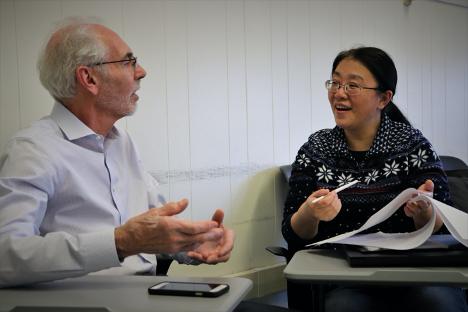
FACULTY BIOS
Professor Al DeCiccio, PhD
Time: TBA
Welcome to ENG 870: Writing Center Practicum! In this course, we will examine the ways in which writing interventions can benefit writers by exploring together a range of strategies for such interventions. We’ll explore everything from what makes a successful writing center session to new media and online tutoring (especially important while experiencing COVID-19), working with writers in the disciplines, working with multilingual writers, working with graduate student-writers and faculty members, and investigating how different identities surface and play out in the Writing Center. This is a writing course.
AL DECICCIO
Serving as Coordinator of the Mary G. Walsh Writing Center at Salem State University since August 2019, Al DeCiccio has been in higher education for four decades. In 2018-2019, DeCiccio completed a oneyear interim position as Dean of the School of Arts, Sciences and Education at D’Youville College where he engineered a peer-to-peer program for New Americans, a new General Education Core Curriculum, and a pathways project for stackable certificates and degrees. Prior to that, he spent four years as Vice President of Academic Affairs at Labouré College, developing two baccalaureate programs as well as the Center for Student Success and Teaching Excellence. Before Labouré, DeCiccio was Provost for six years at Southern Vermont College (SVC), leading the College’s
progressive efforts in laboratory learning. Before accepting the Provost’s position at SVC, he worked for eight years at Rivier University, first, as Dean of the School of Undergraduate Studies and, for the last six years there, as Academic Dean, constructing a revised undergraduate curriculum as well as an Ed.D. program in leadership and policy. Before going to Rivier, DeCiccio was asked to accept a position as Dean of the Graduate School at Wheelock College in Boston. While at Wheelock, he worked to ensure distinguished and effective professional programs in Education, Social Work, Child Life, and Early Intervention. And prior to Wheelock, he worked for nineteen years at Merrimack College, as Professor of English, teaching courses in the English Department’s Rhetoric and Composition program; as a Director of Merrimack’s Writing Center; and as Dean of the Faculty of Liberal Arts. In 19971998, DeCiccio completed a term as President of the International Writing Centers Association; in 20022003, he completed a five-year term as co-editor of The Writing Center Journal. DeCiccio received the International Writing Centers Association Muriel Harris Outstanding Service Award in 2007. He still regularly contributes articles and presentations about collaborative learning, writing, and writing center theory and practice, like this piece for a special edition of the Writing Lab Newsletter (WLN) blog: https:// www.wlnjournal.org/blog/2020/08/tutoring-during-thepandemic/ (Links to an external site.). DeCiccio also write articles on teaching and learning, leadership, and spirituality. He has presented for the International Conference on the First-Year Experience on four occasions: in York, England; in St. Andrews, Scotland; in Maui, Hawaii; and in Montreal, Canada. He will teach ENG 870: Writing Center Graduate Practicum in spring 2021 and ENG 745: Intro to Writing and Rhetoric in summer 2021.
JANUARY GILL O’NEIL
January Gill O'Neil is an associate professor at Salem State University, and the author of Rewilding, Misery Islands, and Underlife all published by CavanKerry Press. From 2012-2018, she served as the executive director of the Massachusetts Poetry Festival, and currently serves on the boards of AWP, Mass Poetry, and Montserrat College of Art. The recipient of fellowships from the Massachusetts Cultural Council, Cave Canem, and the Barbara Deming Memorial Fund, O'Neil was the 2019-2020 John and Renée Grisham Writer-in-Residence at the University of Mississippi, Oxford. She will teach ENG 818: Poetry Workshop in spring 2021.
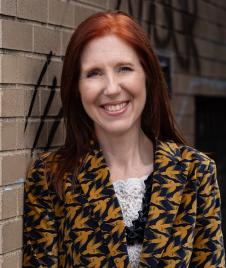
ALEXANDRIA PEARY

Alexandria Peary serves as New Hampshire Poet Laureate and is the 2020 recipient of an Academy of American Poets Laureate Fellowship in support her development of mindful writing workshops for youth survivors of the opioid crisis in her state and the establishment of a young writers’ festival. She is the author of seven books, including Prolific Moment: Theory and Practice of Mindfulness for Writing (Routledge 2018) and The Water Draft (Spuyten Duyvil 2019). Her collection of personal essays, Mattress on the Floor, is currently under consideration at several presses. Her creative nonfiction, poems, and scholarly writing have appeared in journals including College Composition and Communication, Rhetoric Review, Yale Review, North American Review, Southern Humanities Review, Denver Quarterly, New American Writing, and the Gettysburg Review. She specializes in mindful writing, the subject of her 2019 TEDx talk, “How Mindfulness Can Transform the Way You Write,” and the webinar series she is leading for the National Council of Teachers of English during September and October 2020. She will teach ENG 820: Fiction and Narrative Forms in spring 2021.
ROOPIKA RISAM
Roopika Risam is Chair of Secondary and Higher Education and Associate Professor of Secondary and Higher Education and English at Salem State University. Her research lies at the intersections of African diaspora studies, humanities knowledge infrastructures, higher education, and digital humanities. Risam is the author of New Digital Worlds: Postcolonial Digital Humanities in Theory, Praxis, and Pedagogy (Northwestern UP, 2018) and co-editor of Intersectionality in Digital Humanities (Arc Humanities Press, 2019) and The Digital Black Atlantic (Debates in the Digital Humanities series, University of Minnesota Press, 2021). She is currently writing “Insurgent Academics: Undoing the Plantation Academy” (Johns Hopkins UP, 2022), which explores the unsung story of how Black, brown, and Indigenous scholars have used public humanities to transform higher education. She will teach ENG 713: Digital Humanities and ENG 830: Digital Writing in summer 2021.
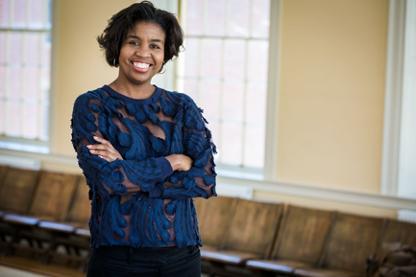
TANYA K RODRIGUE

Tanya K Rodrigue is an associate professor of English and coordinator of the Writing Intensive Curriculum (WIC) program. She teaches courses in writing and the teaching of writing. Her academic interests include writing pedagogy, writing across the curriculum, multimodal and digital reading and writing, and sonic rhetoric. Tanya’s work has been published in several peer-reviewed journals including Computers and Composition; Kairos A Journal of Rhetoric, Technology, and Pedagogy; Pedagogy: Critical Approaches to Teaching Literature, Language, Composition, and Culture; Across the Disciplines; Writing and Pedagogy; and Composition Forum. She is also a regular guest blogger for Bedford Bits, a blog on the teaching of writing. She will teach ENG 817: Approaches to Teaching Composition in spring 2021.
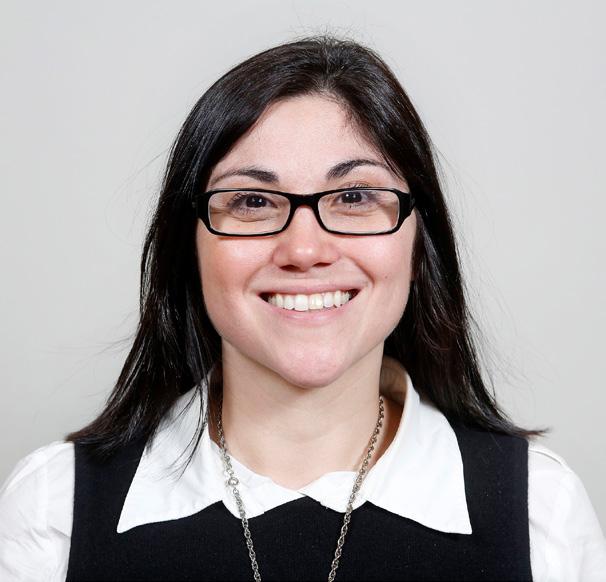
JEFFREY THEIS
Jeffrey Theis specializes in early modern literature with an emphasis on ecocritical approaches to Shakespeare and Milton. His first book, Writing the Forest in Early Modern England, focused on English forests in early modern literature and culture. His current book project focuses on the interrelation between architecture, nature, and the concept of home in the time of Shakespeare. He will teach ENG 761: Shakespeare Teachers Workshop in summer 2021.
KEJA VALENS
Keja Valens, PhD, teaches and writes on Caribbean literature, literatures of the Americas, queer theory, and food writing. Her most recent publications include the anthology Querying Consent: Beyond Permission and Refusal (Rutgers UP, 2018) and the articles “Caribbean Ecopoetics” in Caribbean Literature in Transition (forthcoming, 2020), “Institutionalizing (in)equality: The Double-Edged Sword of Diversity Requirements” with Daniel Delgado in Teaching Race and Ethnicity in Academia (forthcoming, 2020), and “Barbara Johnson” (Oxford Bibliographies of Literary and Critical Theory, 2019). She is currently working on a book project tentatively titled Caribbean Cookbooks: Culinary Colonialism and Recipes for National Culture. She will teach ENG 709: Literature of the American Dream in summer 2021.
STEPHENIE YOUNG
Stephenie Young is a professor in the English Department and faculty research associate for the SSU Center for Holocaust and Genocide Studies. She joined the faculty of Salem State in the fall of 2008. She completed her MA and PhD in comparative literature at the State University of New York, Binghamton, and earned her BA in art history from California State University, Long Beach. She has also studied the practice of photography at the Academy of Art in San Francisco and with the Santa Fe Workshops in New Mexico. Her forthcoming book, The Forensics of Memorialization, is about the “forensic imagination,” and how traumatic material culture is used to create visual narratives that shape memory politics in post-conflict former Yugoslavia. She has a forthcoming essay entitled, “Boundary-Aesthetics: Obscured Scenographies of Violence at the U.S./Mexican Border,” in Performing Human Rights. Contested Amnesia and Aesthetic Practices in the Global South. Zurich, 2021: Diaphanes/ Think Art. She will teach ENG 794: Studies in Literature of the World in spring 2020.
